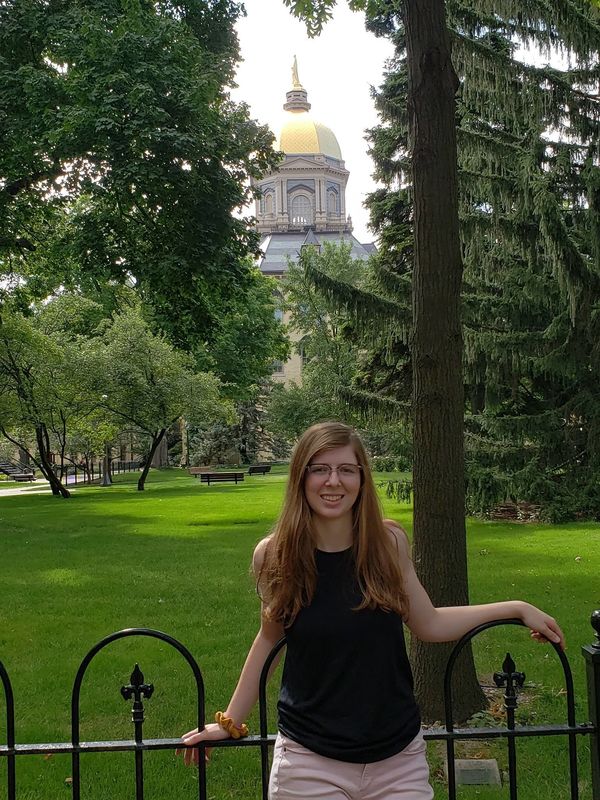
By Megan Allen, ND'22, Undergraduate Research Assistant
The summer after my freshman year of college, I went back home to intern for a county government in the Portland, Oregon area. I watched as policy was developed, refined, and implemented. In each step of this process, there was discussion and analysis but little contemplation of effectiveness. I couldn’t keep questions like Is this the best way to help people? How effective are the initiatives we’re implementing? How could we be helping people more? out of my mind.
LEO’s constant pursuit of answers to these questions is what drew me to LEO’s undergraduate research assistant program and is what has kept me engaged in all of the projects I have been working on. It is inspiring and motivating to know that the work I’m doing will help shape effective programs and policy that will contribute to improving people’s lives for decades.
Much of the work I’ve done at LEO has been within the policy realm. I originally planned this past summer to be located in King County, Washington as an on-site intern on LEO’s projects there. While I didn’t get to experience this in-person portion of my internship due to COVID-19, I was still able to learn a ton about how we can effectively implement new programs from my couch at home.
The two King County projects I’ve been working on are a fully subsidized fare transit program and the county’s Youth and Family Homelessness Prevention Initiative (YFHPI). Both of these projects were in very different stages of the development process when I joined them, so I gained interesting insight into how evidence-based policy is shaped depending on the stage of the project.
The fully subsidized fare program was still in early stages of development, so I learned a lot about the logistics required to set up a new evaluation program. In a typical year, figuring out how participants will be enrolled and assessed is challenging. In the current COVID-19 context it was an immense logistical hurdle. Much of my time on the project has been spent discussing and developing the evaluation plan with our partners in the King County Transit department, and determining how we would move the project forward despite the pandemic.
King County’s YFHPI program provides families either flexible funds or flexible funds combined with counseling services to keep them from falling into homelessness. YFHPI was in the analysis stage when I joined, so I have been analyzing the data we collected so we can begin assessing the program's effectiveness. In both of these projects it’s been fascinating to learn how LEO can help government agencies understand how effective their current programs are and how they can implement more effective policies in the future. The coronavirus pandemic has shown us how important it is for local, state, and federal governments to understand what works best to help families and to be able to quickly respond to new needs in the most impactful ways.
Understanding how we can shape better policy and learning more about the inner workings of county government has been one of my favorite parts of working at LEO. But I’ve also immensely enjoyed being able to use my skills to help improve people’s lives. I originally decided to attend Notre Dame because in every single pre-college presentation, visit, and educational brochure there was an emphasis on attending college—not just to gain knowledge or a higher earning potential—but to serve your community. I’ve grown immensely during my time at Notre Dame, gaining new skills and abilities, and it has been incredibly rewarding to use these skills not just for my own benefit, but for the benefit of the Pacific Northwest community that I grew up in.